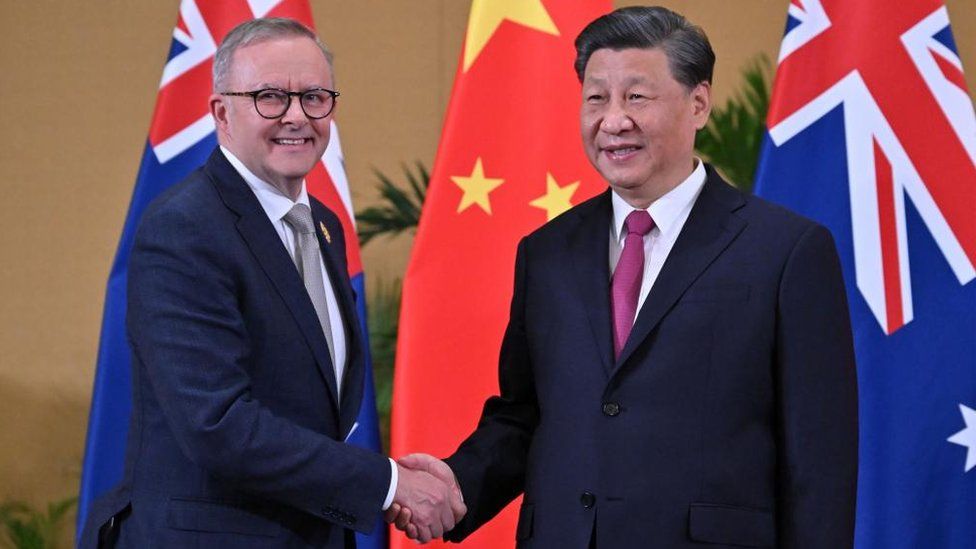-

-
-
Loading

Loading

Australian Prime Minister Anthony Albanese is set to visit China, marking the first visit by an Australian leader in seven years. This comes after a period of strained relations between the two countries, characterized by disputes and accusations of foreign interference. However, both sides have made gestures to renew their ambitions and pave the way for the visit. For example, China recently released Chinese-Australian journalist Cheng Lei, who was detained for over three years, and has also announced a review of its tariffs on Australian exports. On the other hand, Australia has suspended action against China at the World Trade Organization and approved the Chinese lease of a strategic port in Darwin. Despite these efforts, analysts argue that the underlying issues in the relationship have not changed. Both countries are competing for influence in the Pacific Islands region, and Australia is updating its defense posture to counter China's military buildup. Furthermore, there is a gap in perception regarding the next steps in the relationship. Chinese officials express a willingness to deepen the relationship, while Australia sees the current state as the culmination of stabilization efforts. The relationship between Australia and China has been based on mutual benefit since its establishment 50 years ago. China's economic rise created a strong demand for Australian exports, bolstering Australia's economy and facilitating cultural exchanges. However, cracks began to appear in 2018 when Australia banned Huawei from its 5G network rollout, citing security concerns. Disagreements over Hong Kong protests and the investigation into the origins of COVID-19 further strained the relationship. Recently, Australia joined the Aukus security pact, seen as a commitment to counter China in the Indo-Pacific. However, since Prime Minister Albanese took office, both countries have recognized the need to thaw relations. Australia has shifted from confrontational policies to a focus on stabilization. Nevertheless, Mr. Albanese must be cautious not to appear weak, as most Australians still consider China a military threat. The United States will closely observe Mr. Albanese's meeting with Chinese President Xi Jinping, as Washington is concerned about any signs of a softened Australian stance on China. President Joe Biden advised Australia to "trust but verify" its relationship with China. Mr. Albanese aims to use dialogue with President Xi to avoid miscalculations between the two countries. Despite the resumption of talks, there are still several sticking points. Supporters of Australian writer Yang Hengjun, detained in China since 2019 on espionage charges, call for Mr. Albanese to secure his release. Additionally, debates about influence in the Pacific Islands region and Australia's defense posture continue. China's security pact with the Solomon Islands and Australia's deepening military ties with the United States have further complicated the situation. While the need for mutual benefit expressed by former Prime Minister Gough Whitlam in 1973 remains unchanged, Australia's position is heavily influenced by the United States. Prof. Curran suggests that Australia's relationship with China will primarily be based on economic self-interest. As Beijing seeks ways to expand the relationship over the next 50 years, Australia will remain cautious. However, the objective for now is to avoid another period of silence between the two countries. While successful trade talks during the visit may remove remaining trade barriers, no major announcements are expected at this time.